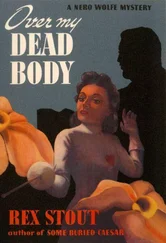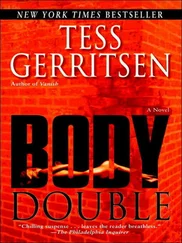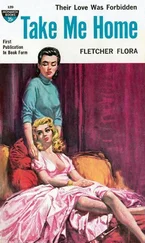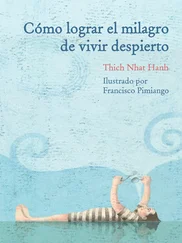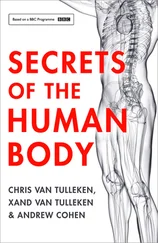Amber Sparks - May We Shed These Human Bodies
Здесь есть возможность читать онлайн «Amber Sparks - May We Shed These Human Bodies» весь текст электронной книги совершенно бесплатно (целиком полную версию без сокращений). В некоторых случаях можно слушать аудио, скачать через торрент в формате fb2 и присутствует краткое содержание. Год выпуска: 2012, Издательство: Curbside Splendor Publishing Inc., Жанр: Современная проза, на английском языке. Описание произведения, (предисловие) а так же отзывы посетителей доступны на портале библиотеки ЛибКат.
- Название:May We Shed These Human Bodies
- Автор:
- Издательство:Curbside Splendor Publishing Inc.
- Жанр:
- Год:2012
- ISBN:нет данных
- Рейтинг книги:5 / 5. Голосов: 1
-
Избранное:Добавить в избранное
- Отзывы:
-
Ваша оценка:
- 100
- 1
- 2
- 3
- 4
- 5
May We Shed These Human Bodies: краткое содержание, описание и аннотация
Предлагаем к чтению аннотацию, описание, краткое содержание или предисловие (зависит от того, что написал сам автор книги «May We Shed These Human Bodies»). Если вы не нашли необходимую информацию о книге — напишите в комментариях, мы постараемся отыскать её.
May We Shed These Human Bodies peers through vast spaces and skies with the world's most powerful telescope to find humanity: wild and bright and hard as diamonds.
May We Shed These Human Bodies — читать онлайн бесплатно полную книгу (весь текст) целиком
Ниже представлен текст книги, разбитый по страницам. Система сохранения места последней прочитанной страницы, позволяет с удобством читать онлайн бесплатно книгу «May We Shed These Human Bodies», без необходимости каждый раз заново искать на чём Вы остановились. Поставьте закладку, и сможете в любой момент перейти на страницу, на которой закончили чтение.
Интервал:
Закладка:
The dictator is fiftyish, fattish, short. He sits in a giant wingback chair with oaken arms carved to look like antlers and cattle hide stretched over the frame. The dictator is obsessed with the American West, and he spends afternoons watching his collection of Western DVDs on his 72 inch flatscreen TV.
When the Americans come to meet with him, he likes to shame them by drinking straight whiskey while they politely ask for a brandy and soda. The dictator understands that American men no longer have any balls, like when they used to herd cattle and hang men from trees. Now they drink like little girls, with tiny sips, nervousness written all over their milky faces.
The dictator despises the Americans. They are nothing like cowboys. They are big, yes, but stupid and loud and vain. They no longer wear hats, and their eyes are watery, evasive. They are shifty. They talk too much. And American women — he hates the American women most of all. They are taller than him, with big feet and big hands. He’s not sure that they don’t have big penises too, hidden beneath those voluminous slacks.
He shakes his head in disgust at the thought, and watches Shane climb up onto his horse. The dictator is the Number One National Champion of Riding, although he has never actually been on a horse. He is terrified of live animals. He is also the Number One National Champion of Fishing, Wrestling, Golf, Racquetball, Archery, Volleyball, Shooting, and General Fitness Excellence.
The dictator’s son walks into the room. General Comrade Father, he says, what the shit are you crying for?
I’m not crying, you ungrateful prick, says the dictator, pausing the DVD. It's the whiskey. It burns my throat and makes my eyes water.
His son flashes a sly, stupid grin. You should be more careful of your health, General Comrade Father. You drink too much. He’s the youngest son, the idiot, and the one that will succeed the dictator if the military has its way. Oh, and General Comrade Father, he asks now, can I have some money?
The dictator sighs loudly, pointedly. He is long-suffering. I just gave you money, he says. What the hell do you need more for? Prostitutes? Vodka? Coffee? Guns? What?
Prostitutes, says the son brightly, as if it were a multiple-choice question. The dictator nods at the Guardsman to his right. Get him some cash, he says. And get him out of my sight before I blow his testicles off with my new Tokarev.
The dictator collects Russian weapons, particularly World War II-era pistols. He practices with them regularly from his balcony. When someone gets shot, if they’re not mortally wounded, they’re supposed to fall down on their knees and thank the heavens that the General Great Leader is such an excellent marksman. If they’re mortally wounded they’re supposed to just lie there quietly and die.
Once his son has gone to his prostitutes, the dictator hits the pause button to resume the movie. Shane is telling Joey to grow up strong, to take care of his parents. The dictator picks up his glass and tilts it sideways, watches the liquid slosh around and coat the sides like amber.
The truth is, the dictator is bored and sad. The truth is, the dictator is crying, and not because the whiskey burns. He’s crying because he knows Joey will never see Shane again, will grow up without a hero, will grow up weak and restless and wanting. He’s weeping because Shane has gone into the mountains for good.
The Chemistry of Objects
Exhibit 5WW: Metal Canister. Discovered at Majdanek, 1944.
The casual observer may, at first glance, mistake the canister behind the glass for a dented coffee can. The label is almost entirely gone, the faded gold paper clinging in shreds to the flaking, rusted metal. But if the visitor looks closely at the largest shred they may make out a group of small black letters, gone indigo with age and sun. Giftgas! the letters shout. How funny it sounds, like a child’s party favor. How exciting! A handful of bright plastic packets. Laughing gas tied off with curled satin ribbons.
But the letters do not shout in English, and the contents of the canister were never meant to be merry. The word is German. The English translation: poison gas. This can is not a coffee can, and it has never contained beans or laughing gas or party favors; it has instead poured pellets of gas into sealed chambers through special vents, smothering those inside. Polish Jews who’d never seen the sea drowned in their own blood.
Exhibit 144G: Grecian urn engraved with images of the Siege of Kirrha, circa 590 B.C.
The history of chemistry starts with a greed for gold. But soon after greed comes process, then order, then method, and the method improves over time. Paracelsus, Boyle, Lavoisier, Dalton — they demand rigor and develop theory. And as they mix and measure and observe reactions — the making and breaking of chemical bonds — it is not alchemy, not magic and spells and incantations, but chemistry. Hard, precise work, in the service of something more.
There is also a parallel history, its stain spreading in the shadow of chemistry. It begins in earnest with alchemy, but really, has always bedded down with war. Chinese writings from 1000 B.C. describe a “soul-hunting fog” filled with arsenic. In the West, there is the poisoning of wells — first by the Greeks, then by the Germanic tribes at war with the Romans. To this last, the Romans respond nobly, armis bella non venenis geri. War is fought with weapons, not with poisons. Which would be admirable prose save for the Romans’ own tainting of enemy wells in Anatolia.
Chemical warfare is chemistry’s hideous offspring, locked away in the attic until its grotesqueries are required. Leonardo DaVinci proposes making a powder of chalk, sulfide of arsenic, and verdigris. He recommends launching this powder at enemy ships with projectiles, in order to asphyxiate those on board.
In 1854, a British chemist suggests the use of chlorine-filled shells to end the siege of Sevastopol. He is roundly rebuked by the British Ordnance Department for bad form, but simply shrugs. No doubt in time, he says, chemistry will be used to lessen the suffering of combatants. No doubt in time.
Like Frankenstein, we become dangerous makers. Our hearts lean toward what burns in nature, and whether for pleasure or profit, through accident or malice, we create what kills best. And try as we might, we cannot seem to climb out of this paradox. We are monkeys with test tubes, apes at the evolutionary table. The big brains.
+
Exhibit 23W: 9 mm Luger pistol, manufactured in Germany, 1911.
It is 1915, and a couple is arguing. He is quick, canny, but also by turns saturnine; he can sink faulty logic with a single dry shot. He is a well-known wit, well-respected in the scientific community: a brilliant, brainy chemist.
But then again, so is she. And she is turning his arguments inside out, spreading their guts on the dining room table and picking them carefully apart. He says he has discovered a way to end the war. She raises an eyebrow. He says he wants peace, only peace — but he is also a good Prussian nationalist, and he loves his country. And he loves his country winning.
Ach, Fritz, she says. It goes against everything, everything we do. She is a pacifist, a romantic idealist; when emotional she becomes raw energy bubbling over. It’s immoral, she says. It’s inhuman. She says everything she can think of, everything to win the argument.
But she has already lost. His resolve is hardened toward the weapons of war. And so in the spring of 1915, he will put his idea into practice and release chlorine gas from pressurized cylinders at Ypres, allowing the wind to carry it over the enemy’s trenches. French and Algerian boys will watch the creeping gas cloud, green and sulfurous, more surprised than anything as they begin to choke on their own breath.
Читать дальшеИнтервал:
Закладка:
Похожие книги на «May We Shed These Human Bodies»
Представляем Вашему вниманию похожие книги на «May We Shed These Human Bodies» списком для выбора. Мы отобрали схожую по названию и смыслу литературу в надежде предоставить читателям больше вариантов отыскать новые, интересные, ещё непрочитанные произведения.
Обсуждение, отзывы о книге «May We Shed These Human Bodies» и просто собственные мнения читателей. Оставьте ваши комментарии, напишите, что Вы думаете о произведении, его смысле или главных героях. Укажите что конкретно понравилось, а что нет, и почему Вы так считаете.
